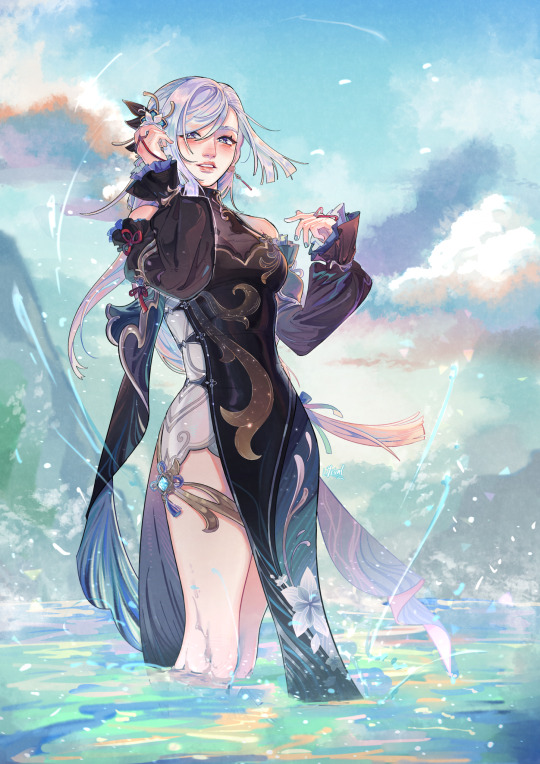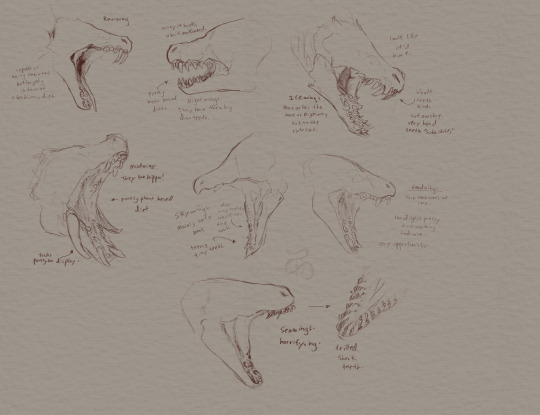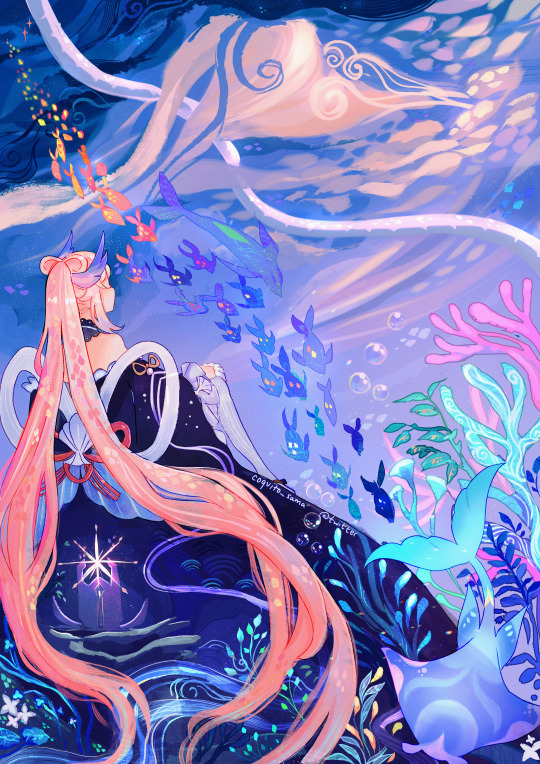Text
Hi guys, update:
Two days after I've tried to create a ticket, they sent an email and now I am in the process of changing my email! I'm not sure if it was on their end or if it was gmail's fault but-
Let's just hope it goes through 😩

@flightrising I've been trying to submit a request to change my account email as I've lost acess to it but every time this shows up and now I can't acess my account at all :<
anyone knows what should i do?
51 notes
·
View notes
Text
@flightrising This message popped up when I used the new email that I have access to! So now I can't even request an email change because it won't let me submit a ticket :(((((
I tried several times already and that message always showed up!

@flightrising I've been trying to submit a request to change my account email as I've lost acess to it but every time this shows up and now I can't acess my account at all :<
anyone knows what should i do?
51 notes
·
View notes
Text

@flightrising I've been trying to submit a request to change my account email as I've lost acess to it but every time this shows up and now I can't acess my account at all :<
anyone knows what should i do?
51 notes
·
View notes
Text

@flightrising I've been trying to submit a request to change my account email as I've lost acess to it but every time this shows up and now I can't acess my account at all :<
anyone knows what should i do?
51 notes
·
View notes
Note
I don't even have to say it but I will. Noibat. Eviscerate my boy.
I think I somehow managed to make them more marketable (?)
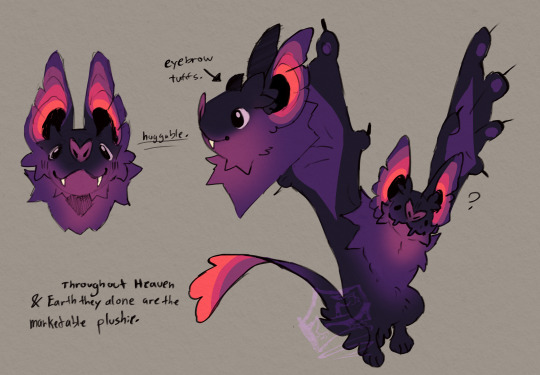
2K notes
·
View notes
Text

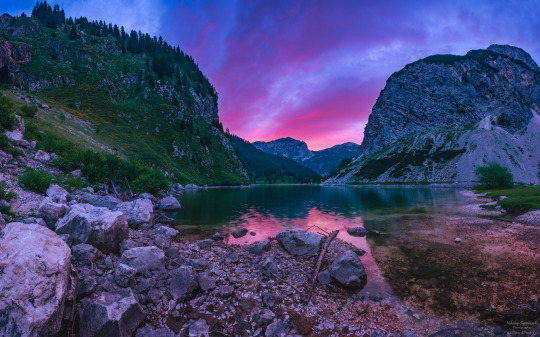
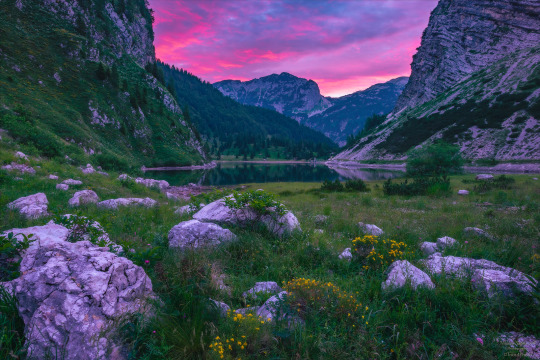
Colorful Summer Sunrise on Krnsko Lake, Slovenia by Nikolai Sapronov
7K notes
·
View notes
Text
Symmetry Move Brush for CLIP STUDIO PAINT
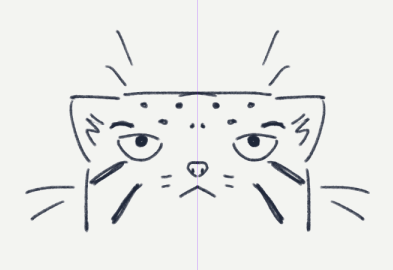

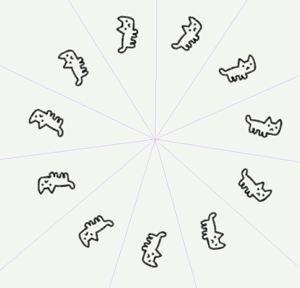
I've just released this free "Symmetry Move Brush" tool on Clip Studio Assets.
Check the link for more info on what it does and what it's for: https://assets.clip-studio.com/en-us/detail?id=1974271
40K notes
·
View notes
Text

Saw a post like this with negative outlook so I asked for it to be fixed
80K notes
·
View notes
Photo

Spiral Serpents: Sketchin’ out a possible additional dragon species for Flight Rising. It would be awesome to launch with a few more available.
2K notes
·
View notes
Text
character design challenge, fr edition: make gaolers, tundras and obelisks instantly distinct from each other
836 notes
·
View notes
Text
Sornieth Solar System
Sornieth is the fourth planet in its solar system, though it is the only one of its family of seven that is known to be artificial. Understanding Sornieth’s true nature as a constructed planet, and being able to observe our sister worlds without interference from Sornieth’s atmosphere, has allowed us to gain a much more detailed understanding of our solar system.
For a long time, the four inner planets were the only ones known to dragonkind, due to Sornieth’s unique atmospheric distortion and the strange 25-AU gap between Sornieth and the next furthest planet. It was only when we were able to observe from outside the atmosphere that we were able to assemble a truly accurate picture.
(For ease of reading, I will be using Earth as a reference for measurements. 1 AU = distance between Earth and Sun, about 93 million miles or 150 million km.)
SUN
The star of Sornieth’s solar system is a rather ordinary K-type, Population I, main sequence orange dwarf star.
Spectral Type: K2V
Mass: 0.830 solar masses
Radius: 0.785 solar radii
Luminosity: 0.37 solar luminosities
Effective temperature: 5120K
Lifespan: 16 billion years
Age: 10 billion years
Other info / notable details: N/A
Tlinieth
The first planet from the Sun, Tlinieth was once a gas giant. However, its extreme proximity to the star stripped away its atmosphere, leaving behind only its metallic core. The planet is currently extremely dense, though it is in the process of decompressing. From Sornieth, the planet is far too close to the sun to be visible, but its transits cause measurable dips in the Sun’s brightness.
Mass: 30 Earth masses
Radius: 8 Earth radii
Orbital radius: 0.025 AU
Orbital eccentricity: 0.008 (nearly perfectly circular)
Year length: 1.58 days
Day length: 1.58 days (tidally locked)
Composition: Rocky
Atmosphere: None
Moons: None
Other: Astronomers knew of the planet’s existence for thousands of years due to its gravitational influence and slight dips in the Sun’s brightness, but were unable to actually observe it due to its proximity to the star until quite recently. Although recently discovered, its name is derived from the ancient Draconic words meaning “burning planet”.
Kirnieth
Kirnieth, second planet from the Sun, is a small rocky planet with a highly eccentric orbit; it’s theorized the planet may have started out more circular, and had its orbit disrupted by the migration of Tlinieth through the inner solar system. It lacks an atmosphere, and its dark surface is covered in glowing cracks where gravitational stress and asteroid impacts have taken their toll on the crust, exposing the molten mantle.
Mass: 0.10 Earth masses
Radius: 0.44 Earth radii
Semimajor Axis: 0.37 AU
Orbital eccentricity: 0.21 (high eccentricity)
Year length: 90 days
Day length: 16 days
Composition: Rocky
Atmosphere: Very thin, mostly carbon dioxide
Moons: none
Other: Its name is derived from the ancient Draconic words for “dancing planet”, due to its swift motion through the sky and difficulties in predicting its position in ancient times.
Merakai
Merakai has, in the past decade, gone from one of the least interesting planets to the most fascinating. The planet is much more within the star’s habitable zone than Sornieth itself- and is the only other world known to support life. Through the lenses of our best telescopes on Sornieth, the planet’s surface has appeared a smooth, hazy, featureless tan. Upon closer inspection, however, we found the othermost layer of the planet to be riddled with tunnels and rooms too small for any dragons much larger than a skydancer, unmistakably artificial and incredibly ancient- older than Sornieth itself. This planet once supported a vast technologically advanced society. The planet-wide underground complex, which is now known as the Labyrinth, seems to have begun as a crude construction at least 5 million years ago, but was rapidly expanded to cover the whole planet and then even more rapidly abandoned over the total course of 1000-1500 years, 1 million years ago. Why the Labyrinth Builders disappeared is still unknown. Although the planet is no longer home to any megafauna, small ‘plants’, ‘animals’, and microbes continue to thrive.
Mass: 1.21 Earth masses
Radius: 1.10 Earth radii
Orbital radius: 0.5 AU
Orbital eccentricity: 0.018 (near-circular)
Year length: 142 days
Day length: 28 hours
Composition: Rocky
Atmosphere: Nitrogen, oxygen, and other trace gases; slightly thinner than Sornieth. Breathable, but irritates lungs of dragons after prolonged exposure. Beastclans seem to be able to breathe the air indefinitely.
Moons: 13 known small, irregular moons in an impressive ring system
Other: Merakai is the only planet whose common name is Beastclan in origin, rather than draconic, though scholars continue to argue about the origins and meaning of the name. It is also the only other currently inhabited planet in the solar system; The Company have been traversing its atmosphere in airships for a few years, and intend to eventually build a permanent base. The Company have also been at the forefront of exploring the Labyrinth and researching those who came before. A few of the researchers believe Merakai was home to the spacefaring common ancestors of many Beastclans long before dragonkind ever existed. A few decades ago, all of us would’ve called this idea madness. Now, we agree it is at least worth a serious investigation.
Sornieth
Sornieth is an extremely recent newcomer to the system, at least on cosmic timescales. The planet is only about 1 million years old, compared to the 10 billion year age of the system. Currently, we believe the planet was constructed from material gathered from the asteroid belt just beyond the planet’s orbit. The planet is hollow, or at least mostly hollow- we don’t know whether the cavity contains air, vacuum, or low-density support structures, but we do know the Rift opening is at the planet’s core, powering all magic on the planet. We are, essentially, living on the outside of a small Dyson sphere.
Mass: 1.87 Earth masses
Radius: 1.6 Earth radii
Orbital radius: 0.94 AU; on the cold outskirts of the star’s habitable zone. The heat that makes liquid water possible at this distance comes from the inside. Our current theory is that, rather than the planet’s distance being a design flaw the Eleven need to divert energy to, Sornieth was created farther away from the Sun intentionally so the gods could use the planet to dissipate excess Rift energy as heat. Perhaps simply building the planet farther away and letting the Rift heat it internally was easier and more efficient than finding a way to limit the flow of energy or cool the core.
Orbital eccentricity: 0.000 (perfectly circular according to our current best measurements)
Year length: 365 days
Day length: 24 hours
Composition: Very dense rocky shell (about 1/10th of total radius); hollow interior. Relatively thin crust over a thin layer of mantle; plate tectonics are extremely slow, with most volcanoes caused by hot spots.
Atmosphere: Nitrogen, oxygen, and other trace gases
Moons: 2 “twin” moons- the Weaver’s Eye and the Binder’s Eye. They are the same size (0.15 Earth radii, 0.01 Earth masses), perfectly spherical, and have seemingly identical color and composition, though the Binder’s Eye is farther away and appears smaller. They are currently unexplored in any detail due to difficulties presented by force field distortion- like trying to make out writing a mile away through a haze of hot air. It’s unknown whether these moons are natural satellites the planet captured, or constructions like Sornieth itself. There have been some indications of structures on the surface, but we haven’t been able to eliminate the possibility that this is simply due to the unique distortion.
Other: Name is ancient Draconic for “our planet”. One of two planets in our solar system known to harbor life. Why the Eleven built it is unknown. Sornieth is the only planet in the system that can sustain magic, due to the Rift. The Rift itself remains mysterious in origin, but what little we know is this: the Rift is a hole between universes, connecting the center of Sornieth to the core of a star in a parallel universe. The Rift leeches energy from the star, which is what makes magic possible here- energy from ‘nothing’, with the Eleven acting as conduits. However, this has destabilized the star and accelerated its demise. The residents of this parallel universe created the Shade as a weapon of self-defense. We are unable to make the details of our research public for security reasons; for more information on the Rift, Shade, or Riftkind, it is necessary to contact the Vigilance personally.
Void Belt
For thousands of years, the solar system was believed to consist only of the four inner planets, with Sornieth marking its outer edge and nothing but asteroids and comets beyond. It’s understandable that scholars believed this to be the case; the idea of there being a nearly 4-billion-kilometer gap between Sornieth and the next planet would’ve been difficult to take seriously, especially without much visible evidence. The outer planets orbit slowly, and with atmospheric distortion, most of them are invisible to the naked eye and nearly impossible to spot even with a telescope. It wasn’t until we were able to observe our solar system from space that these planets were discovered. The 25-AU gap- which we call the Void Belt- contains several asteroid belts and swarms of comets, but nothing large enough to qualify as a dwarf planet.
Shanieth
Shanieth is a frozen water world, the closest of the recently discovered Outer Planets. Although we have sent a probe to explore it, it will be decades before that probe arrives. Unless we can build something faster, or spare a large amount of resources to send Horizon Seeker, it will be a long time before Shanieth reveals her mysteries.
Mass: 2.3 Earth masses
Radius: 1.3 Earth radii
Orbital radius: 26 AU
Orbital eccentricity: 0.07
Year length: 217.9 years
Day length: 19.4 hours
Composition: Rocky, with thick outer layer of ice/water.
Atmosphere: Thick; nitrogen, oxygen, water vapor and carbon dioxide. Greenhouse effect makes the planet somewhat warmer, but not enough to make it habitable for any known macroscopic life.
Moons: None; three very thin rings.
Other: Name is ancient Draconic for “frozen planet”, to accompany Tlinieth. It’s likely the planet’s water layer is not frozen all the way through, but has a several-kilometer-deep ice ‘shell’ with an extremely deep liquid ocean beneath heated by pressure and the planet’s interior. It’s theorized this ocean may sustain some extremely strange alien life, but so far we don’t have conclusive evidence either way.
Xai
Xai is a brilliant blue gas giant with a large, beautiful icy ring system, and is the second largest planet.
Mass: 69 Earth masses
Radius: 4.2 Earth radii
Orbital radius: 30 AU
Orbital eccentricity: 0.05
Year length: 270.1 years
Day length: 11 hours
Composition: Gas giant; primarily hydrogen, helium
Moons: 28 known
Other: The name is derived from an ancient Maren sky deity.
Osoba
Osoba is a small brown dwarf, an object between the largest gas giants and the smallest stars; large enough to fuse deuterium, but not massive enough to fuse hydrogen to helium in their cores like proper stars. It glows a dim magenta, and has a surface temperature of about 600K. It is not visible with the naked eye from Sornieth and is barely visible as an extremely faint magenta object through telescopes. Osoba is younger than the rest of the solar system, which coupled with its highly eccentric orbit suggests this may in fact be a failed star captured by the Sun, rather than something that formed in the solar system. We’ve been unable to explore it in much detail; we plan to send the Horizon Seeker there as a test run of its deep space travel capabilities before we attempt a mission to another star system.
Mass: 9550 Earth masses
Radius: 11.5 Earth radii
Semimajor axis: 60 AU
Orbital eccentricity: 0.25
Year length: 764 years
Day length: uncertain
Composition: Mostly hydrogen, helium
Moons: 34 known, 4 of them large enough that they could be considered dwarf or small planets if they weren’t moons.
Other: Name derived from the ruler of the Serthis underworld.
182 notes
·
View notes
Text
me every time I correctly identify a color based off a scry that my friend shows me: I am going to get a good mark in flight rising color identification. something that is completely cool and normal and not incredibly online
613 notes
·
View notes
